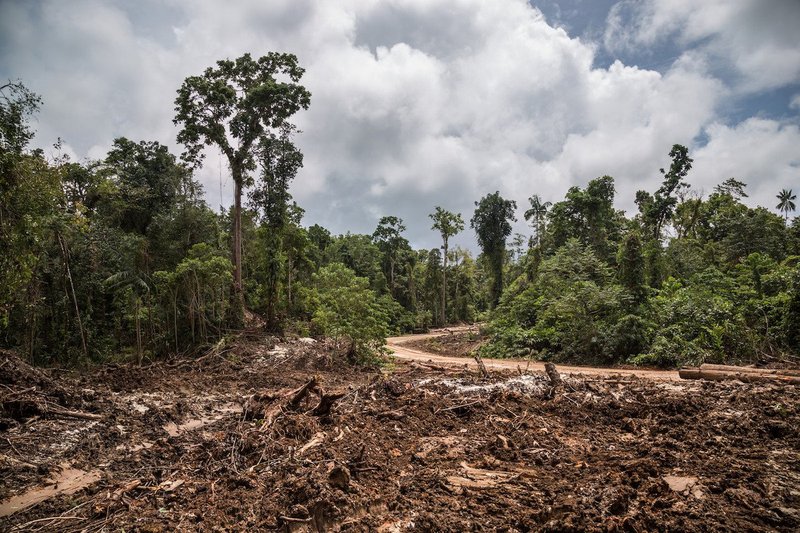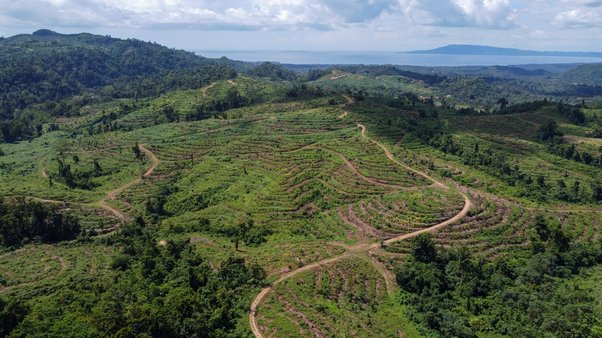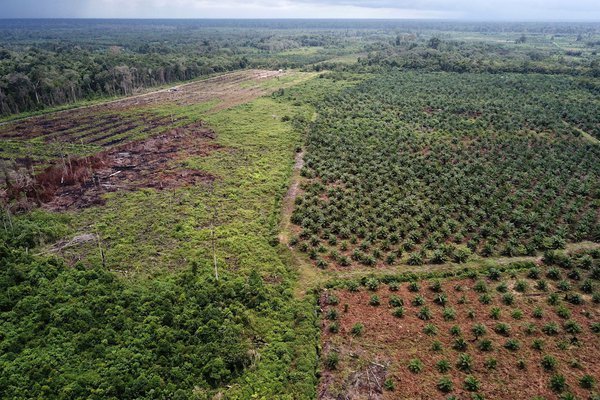Papua New Guinea’s government has taken big, bold action against a logging company.
The logging sector in Papua New Guinea (PNG) is infamous for its destruction of the country’s forests – and with them, many Papua New Guineans’ livelihoods. Now, following years of working with our partners to expose these abuses, the country’s tax authority has imposed a historic £31 million assessment against a logging operator for tax evasion. It’s amazing news that builds on years of investigations and campaigning - though our colleagues in PNG caution that much more needs to be done to support forest communities.
First, some background. Lying just north of Australia, the island nation of PNG is part of the world’s third-largest rainforest. PNG is unusual in that local communities’ land rights are codified in the national Constitution and in law. Most of the country’s some 10 million people live in rural communities and depend directly on their environment for some or all of their sustenance, livelihoods, and cultural traditions. PNG is also a “megadiverse” country, home to endemic rarities like birds of paradise and tree kangaroos, many of which rely on those forests.

Global Witness visits and documents a community's struggle against logging and palm oil developments that threaten the land and life of Papua New Guinea’s communities.
But the PNG government has tended to ignore its peoples’ rights when it comes to forests. Time and again, our reporting — and that of many otherorganizations — has shown that loggers and agribusinesses face virtually no consequence if they violate rights and laws. Over the last decade of our work with PNG activists and civil society, we’ve documented many logging and palm oil companies appearing to break national laws, stripping communities of their forests, and neglecting worker safety on plantations, leading to multiple deaths. Many of these companies have ties to international financiers and global brands.
The first of many?
Reporting by the Oakland Institute has alleged that there has been systematic tax evasion in the PNG logging sector for years through claims of huge losses, at immense cost to PNG taxpayers. We don’t yet know the identity of the company targeted in this first audit, but Oakland Institute reporting has undoubtedly proved crucial to the PNG government’s audits of logging companies, which are focused on tax evasion.
Internal Revenue Commissioner (IRC) General Sam Koim, who announced the audit findings on June 26, said: “The logging sector in PNG has long been suspected of involvement in tax evasion. Instead of turning a blind [eye], we have initiated over twenty audits since I took office... I am pleased to report that this is the first outcome of those audits.”
Koim told us in an email he believed this tax assessment was the first such action against a logging company.
Much more to do
The news has been greeted with guarded optimism by some quarters of PNG civil society. Eddie Tanago, Act Now! campaign manager, told us: "We welcome the news and IRC and particularly Sam Koim must be congratulated for a job well done. But as yet, the monies remain unpaid and still another nineteen audits to be completed. Sadly, the news does nothing to stop the ongoing illegal logging of PNG forests."
Indeed, PNG forest cover loss spiked in 2022 after several years of improvements. And, even if the government is successful in recovering the unpaid taxes, the money will not reach the communities whose forests have been destroyed. Nor can a fine bring the forests back.
Instead, the PNG government should take urgent action now to safeguard community land rights and forests. It can begin by freezing the issuance of all new logging permits and cancelling existing ones, except where the holder can prove it complies with all national, customary, and international laws and has obtained free, prior and informed consent from local communities in order to operate.
And, crucially, it must ensure the other audits into logging companies are resourced, completed, and their outcomes made public. Under Koim’s direction, the IRC has shown that the PNG government has the will to act on behalf of its people and forests. This is a first; it cannot be the last.


